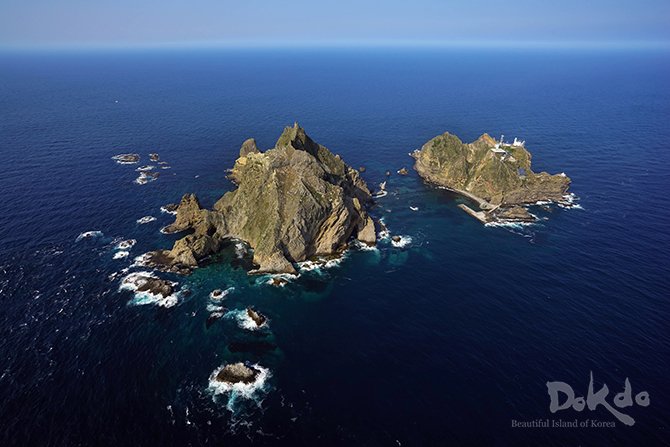South Korea’s mistake marred first meeting with Kishida’s Foreign Ministry
The United States, South Korea, and Japan held trilateral vice-ministerial level meetings this week in Washington D.C., but a planned joint press conference was canceled likely due to a visit by the chief of South Korea’s police to the disputed islets claimed by both Seoul and Tokyo.
Kim Chang-yong, South Korea’s police commissioner general, visited the South Korea-controlled Dokdo islets in the East Sea shortly before the important trilateral meetings. South Korean conservatives criticized the Moon Jae-in administration for upsetting Japan at an important time when top diplomats were meeting to discuss cooperation on North Korean denuclearization.
The ruling Democratic Party (DP), on the other hand, argued that the commissioner has the right to visit the islet anytime he wants since it is under his “jurisdiction.” The DP criticized the United States for taking a vague stance on Dokdo, which is called Takeshima by Japan. It went further to say that Washington is “responsible” for the dispute over the Dokdo islets.
U.S. Deputy Secretary of State Wendy Sherman met with South Korean First Vice Foreign Minister Choi Jong-kun and Japanese Vice Foreign Minister Takeo Mori on Wednesday. The three were supposed to hold a press conference together, but Sherman ended up holding a solo press conference. It was reported that Mori boycotted the press briefing at the last minute after his government lodged a strong protest over Kim’s visit to Dokdo this week. Choi agreed that Sherman should do the press conference alone, according to media reports.
“I want to note at the outset that as has been the case for some time, there are some bilateral differences between Japan and the ROK that are continuing to be resolved, and one of those differences which is unrelated to today’s meeting has led to the change in format for today’s press availability,” Sherman said during the press briefing. “Nonetheless, we had a very constructive trilateral meeting today.” She did not provide further details.
Police Commissioner General Kim visited Dokdo Tuesday by helicopter for an inspection and to convey words of encouragement to the officers guarding the islets. It was the first visit in 12 years by the head of the national police agency. The police agency argued that the visit was initially meant to be unpublicized but was leaked to the press.
Chung Jin-suk, deputy speaker of the National Assembly and a lawmaker of the main opposition People Power Party (PPP), was leading a delegation of lawmakers to meet with Japanese politicians in Tokyo when the media reported the commissioner’s visit to the Dokdo islet. Chung said it felt like getting hit in the back of his head, since they visited Tokyo to improve bilateral relations. “Even Kang Chang-il, South Korean Ambassador to Japan, asked whether the commissioner really had to visit the Dokdo islet on the day the delegation from the National Assembly arrived in Tokyo,” Chung said.
Song Young-gil, the head of the DP, blamed the United States for taking a vague stance on why the press conference was canceled. He argued that Sherman took this stance to try to blame both South Korea and Japan and that she should change her way of thinking.
“Isn’t it obvious that we cannot get along with Japan, which caused the Pacific War and colonized us while shouting ‘Tenno Heika Banzai’?” Song asked. The Japanese phrase he mentioned roughly translates as “Long live His Majesty the Emperor.” Song added that he wants to emphasize this fact to the United States.
Song continued to blame the United States for the ongoing dispute over the islets as well. “Dokdo is a part of South Korean territory, but the United States failed to take care of this and fell to the Japanese lobby during the Treaty of San Francisco [in 1951],” Song argued. “The United States is responsible for making it a disputed territory.”
The treaty was signed on September 8, 1951, in order to reestablish peaceful relations between Japan and the Allied Powers. Japan regained its sovereignty over its territory. Under the treaty, Japan was supposed to acknowledge the independence of Korea, including Jeju Island and Ulleungdo Island. However, the Japanese government argued that Takeshima (Dokdo) is not specifically mentioned in the treaty, so it can claim sovereignty over the islet.
A senior official from the presidential Blue House also released a statement on November 18 that said “Dokdo is our territory.” The official reemphasized that the “Dokdo islets are our territory, historically, geopolitically, and under international law.” The official argued that if it is true that the Japanese side did not attend the press conference due to a visit by a police commissioner, “it is very unusual.”
Experts in Washington raised concerns that this could be evidence of a crack in the trilateral cooperation. Scott Snyder, a senior fellow for Korea studies and director of the program on U.S.-Korea policy at the Council on Foreign Relations, told the Voice of America (VOA) that, “It’s emblematic of the challenge associated with a trilateral framework in which there are two countries that are having difficulties in their own bilateral relationship.” He added that “it is disappointing any time that trilateral cooperation or coordination is slowed by a dispute between the two. It shows that the U.S. is in a difficult position it clearly values the alliance with each and among them.”
David Maxwell, a senior fellow at the Foundation for Defense of Democracies, told the VOA that “I think the only thing that’s really going to solve these issues will be the strong and direct leadership of the President of the ROK and the Prime Minister of Japan, who both must pledge to put their national security and national prosperity ahead of these historical issues.”
As of yet, the Moon administration appears to be putting symbolic nationalism over essential trilateral coordination.



